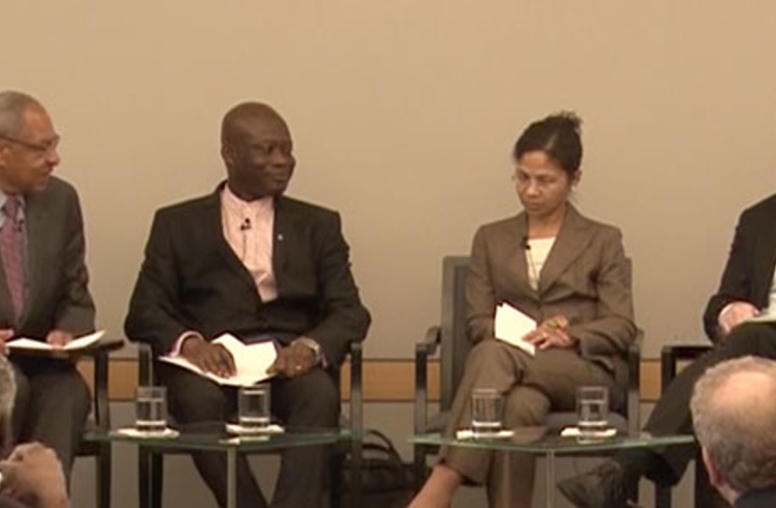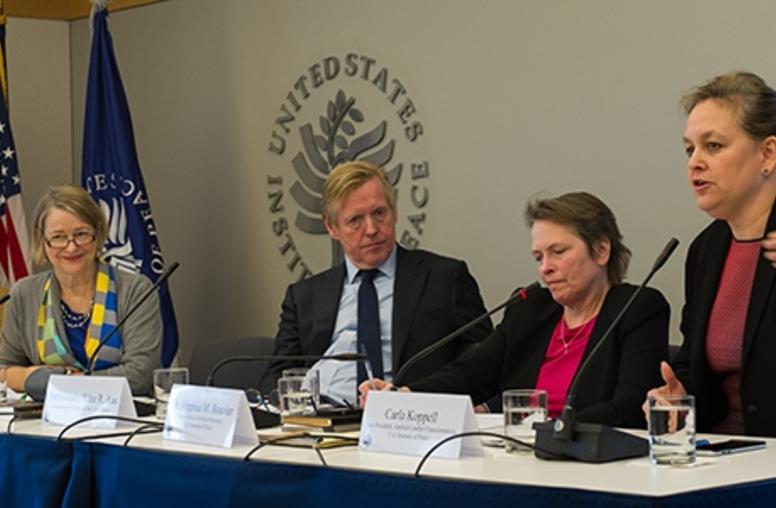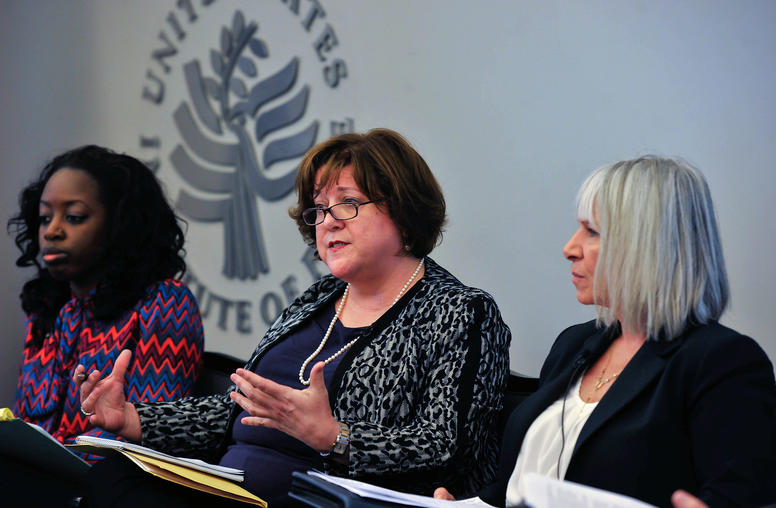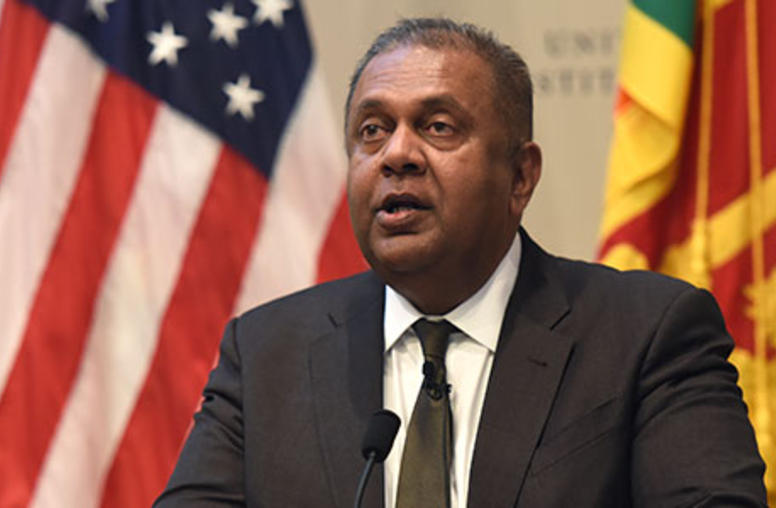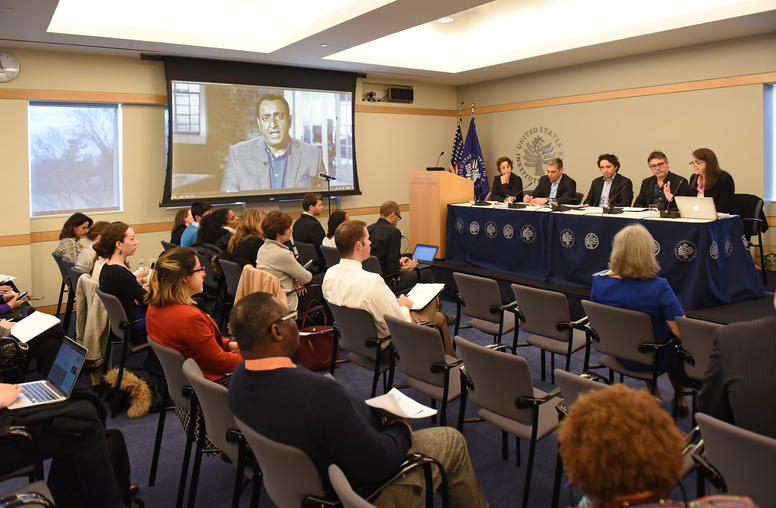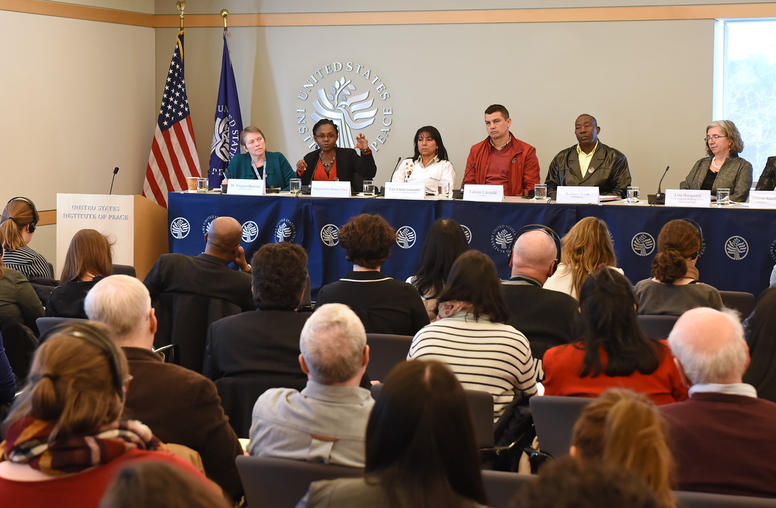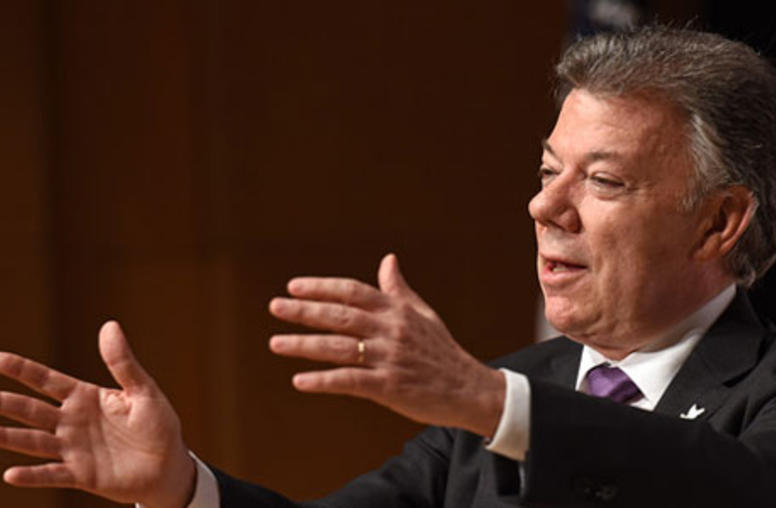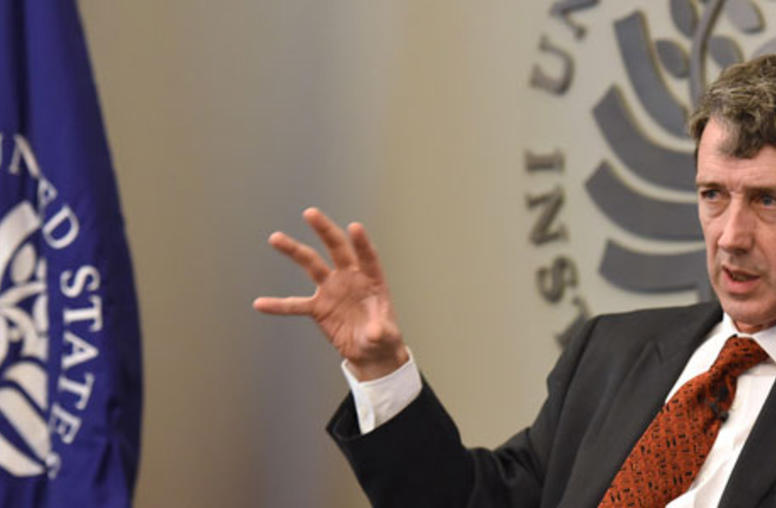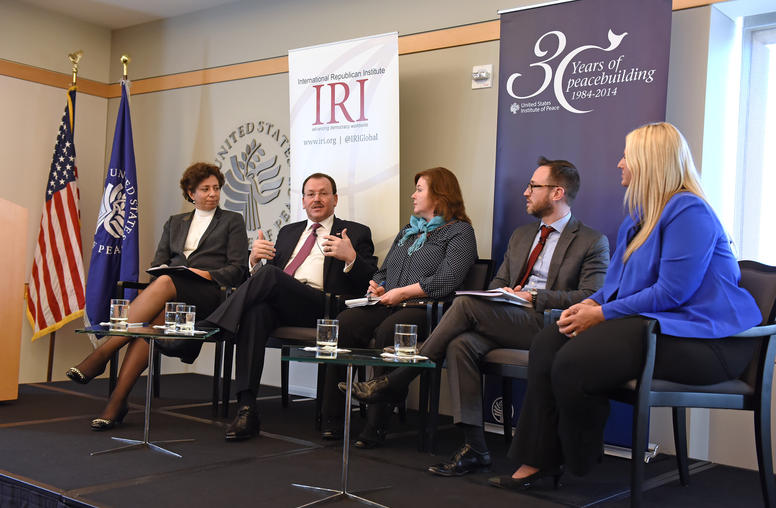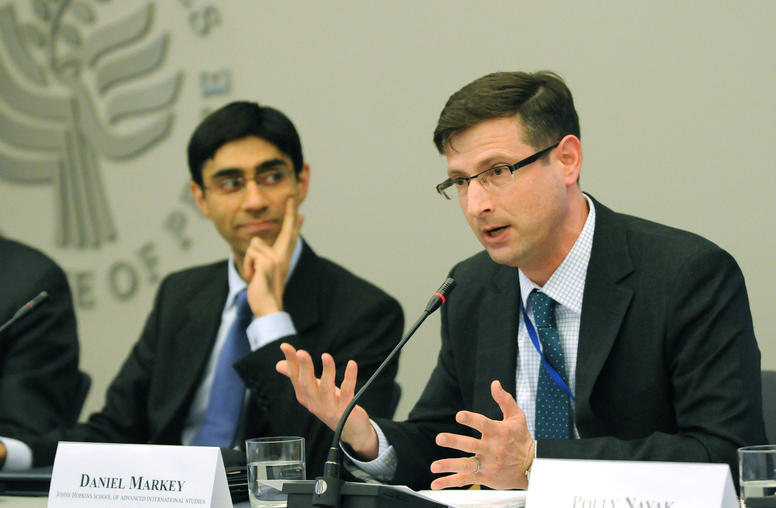
India-Pakistan Crises and the American Role
Eight days after the prime ministers of India and Pakistan met suddenly in December to renew diplomatic dialogue between their countries, a squad of guerrilla fighters, apparently from Pakistan , disrupted the effort with an attack on India’s Pathankot air force base. The governments quickly postponed a planned meeting of their foreign secretaries. A pattern of such crises has recurred over the past decade and a half, and the United States often has sought to quietly mediate to avoid war between the nuclear-armed neighbors. What lessons can we learn from those experiences, and how should U.S. diplomats prepare for future disruptions? A panel of scholars and analysts who have helped manage U.S. relations in South Asia joined USIP’s Moeed Yusuf to examine these and related issues.
